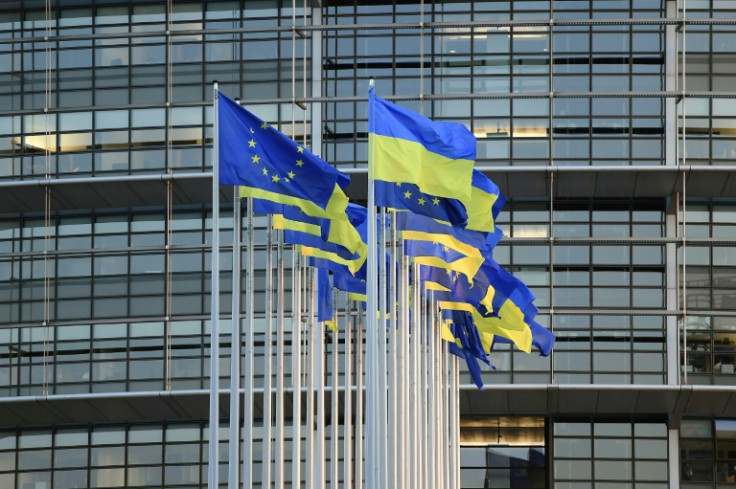EU 'Discomfort' At Hungary Chairing Bloc Meetings

EU ministers expressed "discomfort" on Tuesday at political outlier Hungary taking on the bloc's rotating presidency next year, but Budapest vowed nothing could prevent it filling the prominent role.
The European Parliament is to vote on a non-binding resolution on Thursday urging European Union capitals to deem Hungary unfit to assume the EU presidency in the second half of 2024.
This will be a crucial period just after European elections that will determine the bloc's next legislature and its next executive, the European Commission.
Hungary is viewed in Brussels as a black sheep in the EU -- a backslider on democratic norms and one that obstructs some EU deliberations, including sanctions on Russia, to try to gain national advantage.
"Discomfort is what we all feel" at the looming Hungarian EU presidency, Dutch Foreign Minister Wopke Hoekstra.
He was speaking ahead of an EU ministers' meeting looking at a long-running procedure against Hungary and Poland for breaching European rule of law.
Germany's junior foreign minister, Anna Luehrmann, said: "I have doubts about Hungary's ability to properly carry out its presidency."
"Hungary is currently isolated in the EU because of really serious rule-of-law problems and also because there subsists doubt about Hungary's support for Ukraine in Russia's brutal war of aggression," she said.
EU officials and Budapest, however, point out that EU treaty law stipulates that the presidency -- a chairing position which oversees the EU's agenda for each six-month period -- rotates among all 27 member countries, and little can change that.
"There's no discussion about it. Hungary is going to be the holder of the presidency as an honest broker," Hungarian Justice Minister Judit Varga said.
She called the debate in the European Parliament "nonsense", driven by "frustrated" left-wing lawmakers.
EU Justice commissioner Didier Reynders said, "It's not for the commission to make a choice about the presidency" but it would be "very attentive" to discussions on it among EU member states.
Reynders did, however, highlight deep EU concerns about democratic standards in Hungary, and in Poland. Both are targeted in the years-long procedure, which could ultimately strip them of EU voting rights.
Both countries were accused of trying to undermine independent judges. In Hungary, the issues of corruption and academic freedom are worrisome, he said.
A decision by Poland to create a new commission, ostensibly to probe "Russian influence", was of "special concern" because of its powers to block individuals -- including judges -- from holding public office, Reynders said.
Sweden currently holds the six-month EU presidency, which is to be taken up next month by Spain before rotating to Belgium in the first half of 2024.
The presidency rotation has skipped a country once before. Britain, which was meant to have held it in 2017, gave it up because it voted the year before to leave the EU.
Sweden's minister for European affairs, Jessika Roswall, who chaired Tuesday's meeting, said the issue of Hungary's EU presidency was not on the ministers' agenda.
She said "the expectation" was that all countries assuming the EU presidency had "keep the interests of all the union's members" to hand.
Varga said Hungary had "already created all the structures" needed for its turn.
She also underlined her government's determination to "keep protecting families" -- through a law banning LGBTQ portrayals to minors -- and maintain a hawkish stance on migration.
Varga said also that Budapest had a "pro-peace position" on the war in Ukraine "which the left-wing majority in the European Parliament doesn't like".
On the subject of Tuesday's meeting examining the state of the rule of law in Hungary, she said she would argue that her country has "model institutions" and has implemented "modern rule of law procedures".
© Copyright AFP 2024. All rights reserved.







